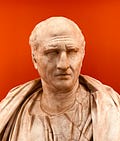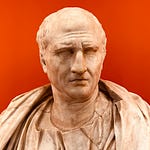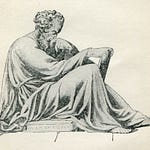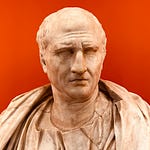“A. To me death seems to be an evil.
M. What, to those who are already dead? or to those who must die?
A. To both.
M. Tell me, I beseech you, are you afraid of the three-headed Cerberus in the shades below, and the roaring waves of Cocytus, and the passage over Acheron, and Tantalus expiring with thirst, while the water touches his chin; and Sisyphus, who sweats with arduous toil in vain the steepy summit of the mount to gain?
A. Do you take me to be so imbecile as to give credit to such things?
M. If, then, there is no one miserable in the infernal regions, there can be no one there at all.
A. I am altogether of that opinion.
M. Where, then, are those you call miserable? or what place do they inhabit? For, if they exist at all, they must be somewhere.
A. I, indeed, am of opinion that they are nowhere.
M. Then they have no existence at all.
A. Even so, and yet they are miserable for this very reason, that they have no existence.
M. I had rather now have you afraid of Cerberus than speak thus inaccurately.
A. In what respect?
M. Because you admit him to exist whose existence you deny with the same breath. Where now is your sagacity? When you say any one is miserable, you say that he who does not exist, does exist.” (Cicero, Tusculan Disputations, I.4-6)














Cicero on whether we should be afraid of being dead